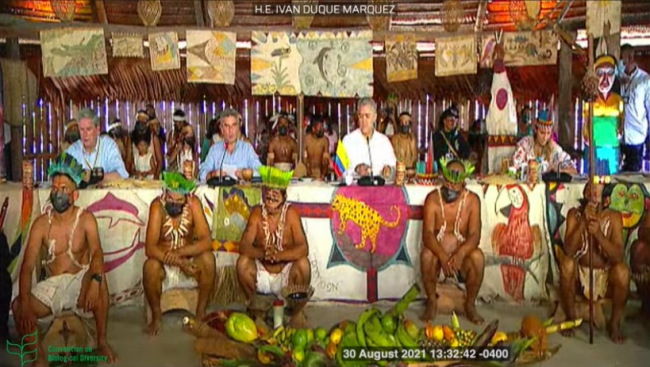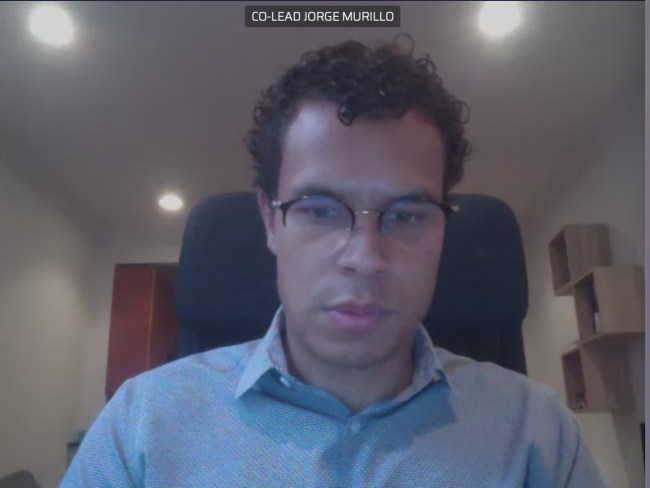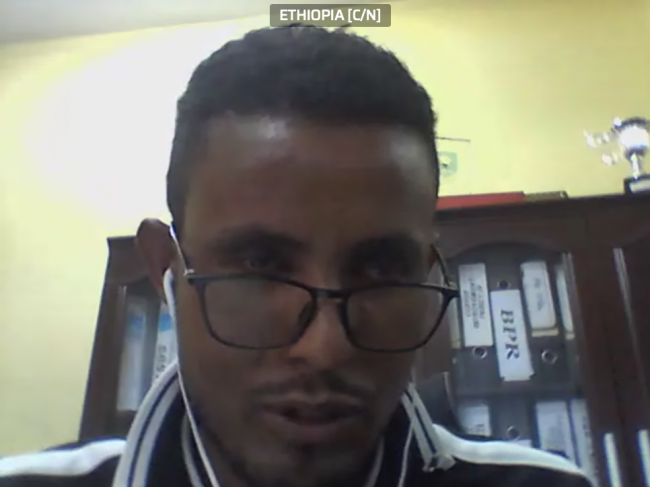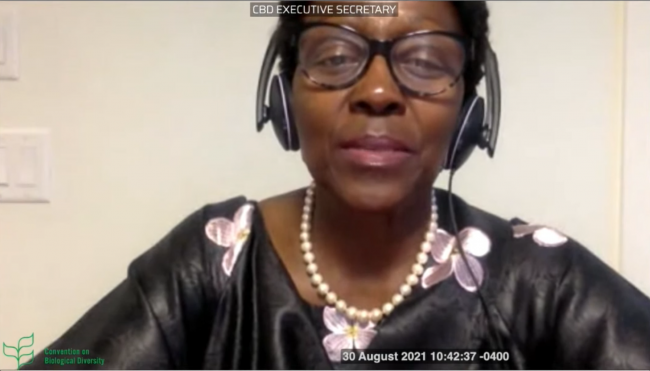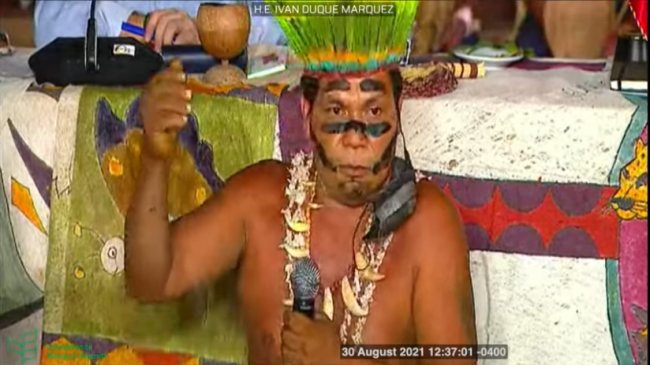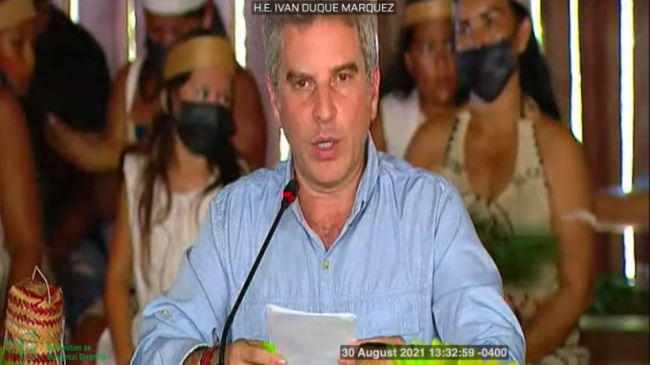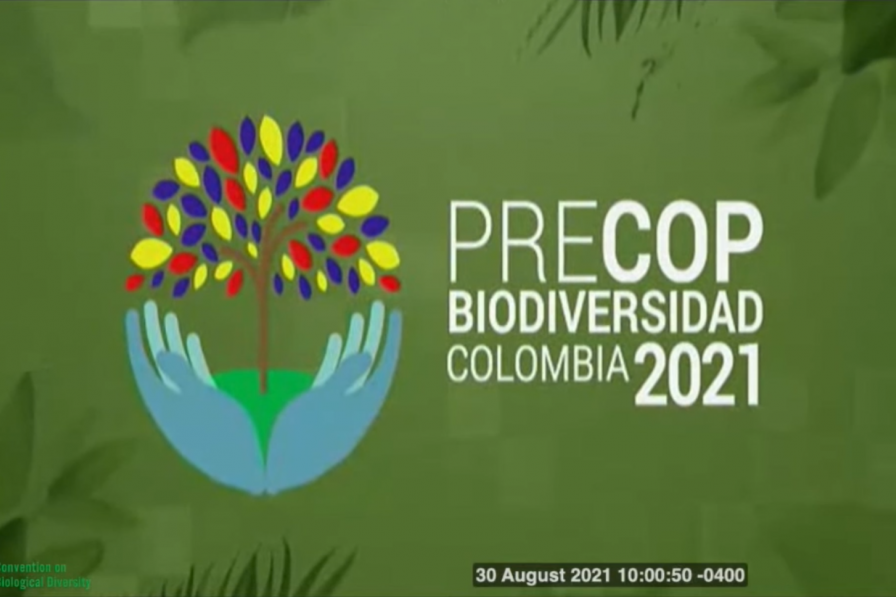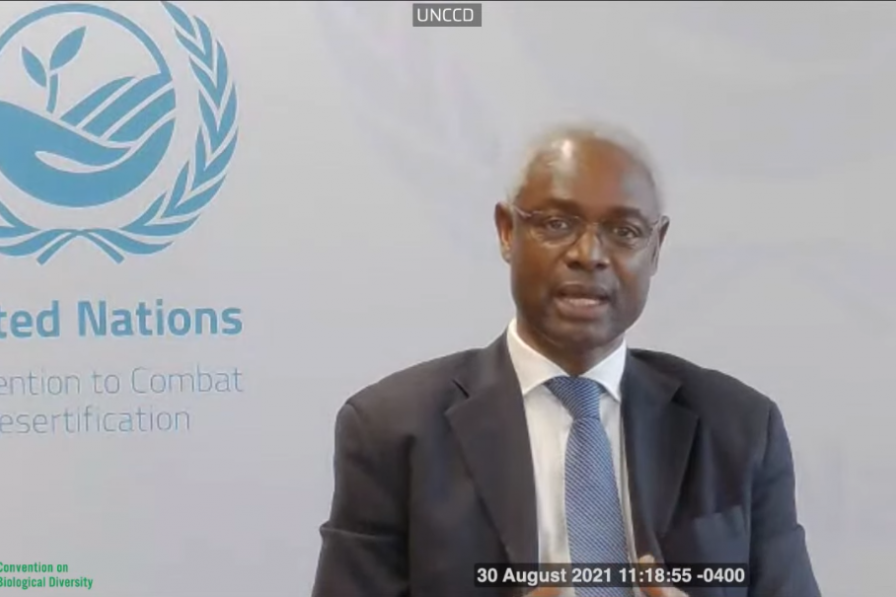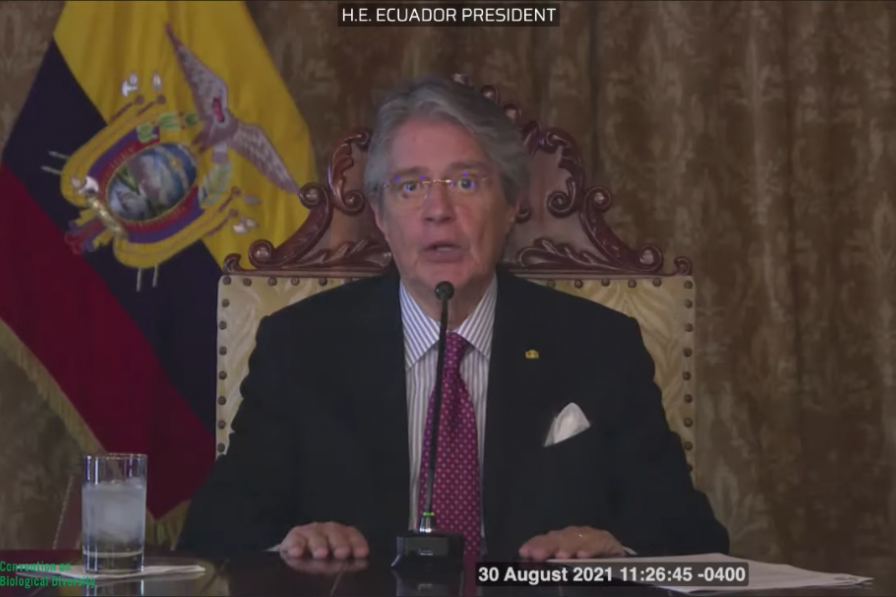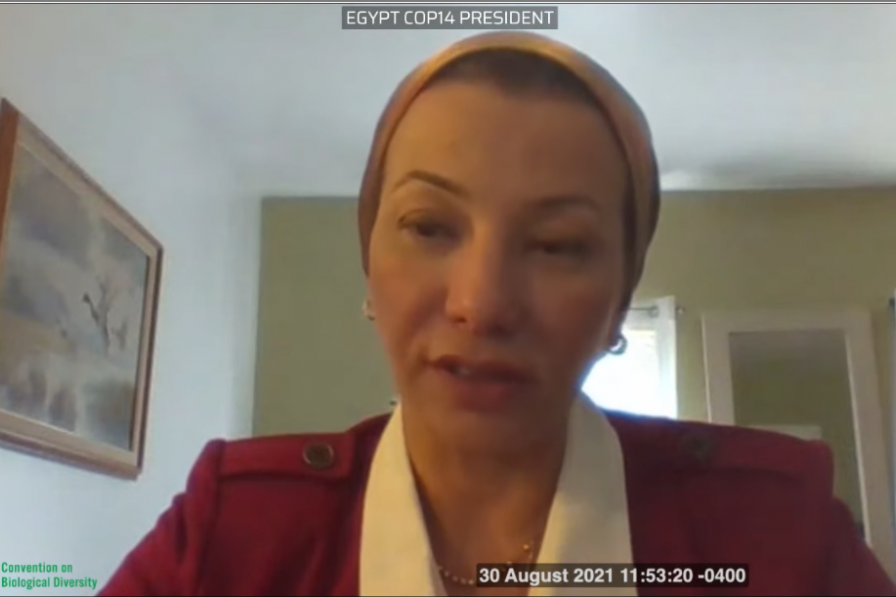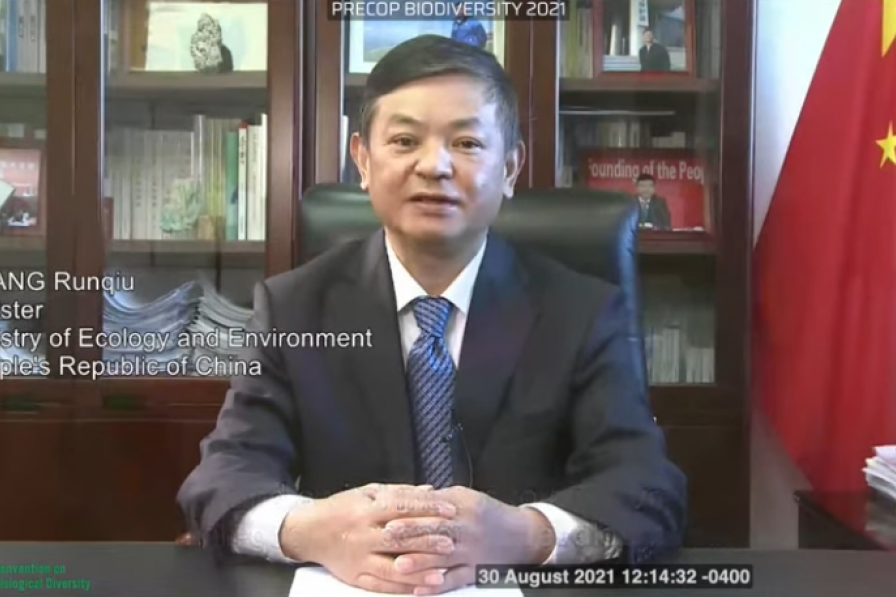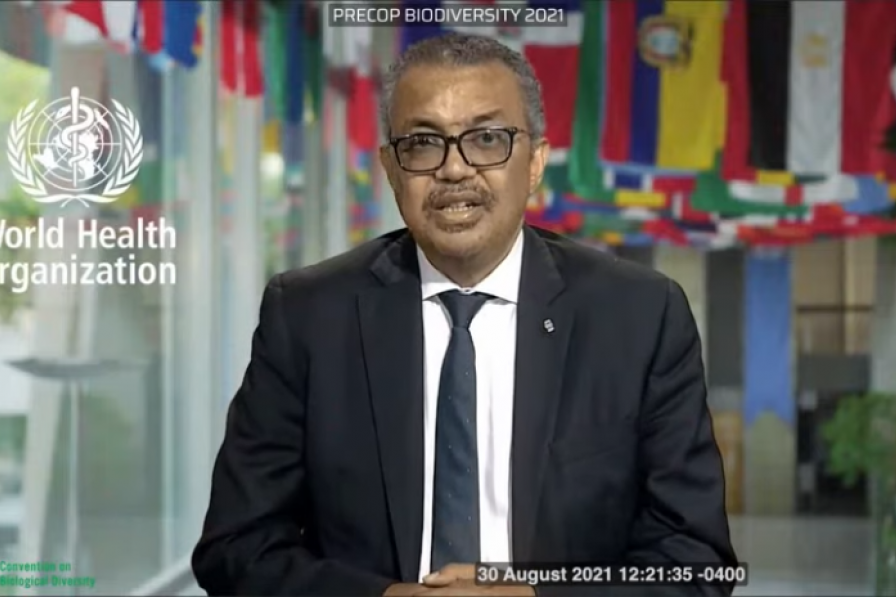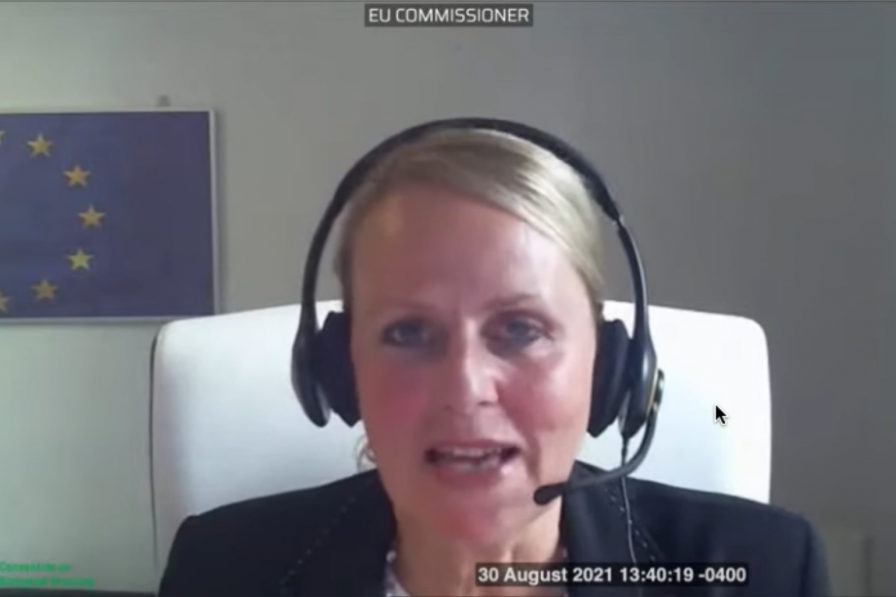The second week of the third meeting of the Working Group on the Post-2020 Global Biodiversity Framework resumed with the contact group on the tools and solutions section of the draft global biodiversity framework (GBF). The meeting also featured a high-level political segment, the Biodiversity Pre-Conference of the Parties (Pre-COP), hosted by the Government of Colombia, in consultation with the Secretariat of the Convention on Biological Diversity (CBD).
Contact Group
The contact group on tools and solutions convened for its second meeting to finalize discussions on sections on: implementation support mechanisms; enabling conditions; responsibility and transparency; and outreach, awareness, and uptake. Participants also discussed target 15 on businesses assessing and reporting their dependencies and impacts on biodiversity; and target 16 on responsible choices to reduce waste and overconsumption.
Biodiversity Pre-COP
The Biodiversity Pre-COP took place within the framework of the Working Group meeting in order to promote high-level political commitment to the adoption of the GBF.
The Pre-COP, which gathered Heads of State, ministers, leaders of international organizations, multilateral financial institutions, women, youth, Indigenous Peoples and local communities, discussed priorities and expectations for an ambitious and effective GBF.
During opening remarks, Iván Duque Márquez, President of Colombia, highlighted the linkages between the biodiversity and climate crises and the need to take urgent action, including on energy transition, transport, sustainable production, and the circular economy.
During the high-level segment, UN Secretary-General António Guterres called for ambition across the entire GBF, from targets to means of implementation. CBD Executive Secretary Elizabeth Maruma Mrema noted that both our societies and our economies depend on natural resources and ecosystem functions, adding that economic actors have a crucial role to play in shifting their business models from nature-negative to nature-positive, and in identifying and disclosing their dependencies on nature and associated risks.
The high-level segment also heard statements by, among others:
- Frans Timmermans, Executive Vice-President, European Commission, calling for: ambitious 2050 goals; clear and measurable milestones for 2030; and a monitoring and review process;
- Klaus Schwab, Executive Chairman, World Economic Forum, urging a new economic model and investment in nature to bridge the financing gap;
- Ibrahim Thiaw, Executive Secretary, UN Convention to Combat Desertification (UNCCD), pointing to the importance of land and ecosystem restoration as a positive implementation strategy; and
- Guillermo Lasso, President of Ecuador, stressing the importance of fair and equitable benefit-sharing and the need to transform global consumption patterns.
During a pre-recorded video segment, Carlos Alvarado Quesada, President of Costa Rica, drew attention to High-Ambition Coalition for Nature and People. Alberto Fernández, President of Argentina, said the GBF should provide for ambitious capacity-building and technology transfer provisions to ensure implementation in developing countries. Huang Runqiu, Minister of Ecology and Environment of China and President of the 15th Conference of the Parties of the CBD, drew attention to China’s experience in striking a balance between conservation and development. Inger Andersen, Executive Director, UN Environment Programme (UNEP) stressed the need for: system change on production and consumption; ambition in the GBF beyond targets, to include capacity, finance and means of implementation, as well as political will; and involvement of business and academia, together with leadership of Indigenous Peoples and local communities (IPLCs).
The Ministerial Segment was moderated by Carlos Correa Escaf, Minister of Environment and Sustainable Development, Colombia. Marta Lucía Ramírez, Vice President and Minister of Foreign Affairs, Colombia, expressed her country’s commitment to conserve at least 30 percent of land and marine areas by 2030 (30 by 30 target)
This segment featured three panels:
- The panel on sustainable consumption and production patterns and green recovery highlighted national experiences in, among others, circular economy and green post-COVID recovery.
- The panel on resource mobilization discussed, among other issues, how to increase the mobilization and allocation of financial resources for GBF implementation, how to eliminate perverse incentives, and the role of the international financial system and the private sector.
- The panel on the role of coalitions and non-state actors highlighted the High Ambition Coalition for Nature and People, the Leaders’ Pledge for Nature, and the Global Ocean Alliance.
In a message on behalf of small island developing states (SIDS), Pearnel Charles Jr., Minister of Housing, Urban Renewal, Environment and Climate Change, Jamaica, said conservation and sustainable use solutions have potential to reduce disaster risk in SIDS.
In his closing remarks, President Duque Márquez said the discussions pointed to the need for: specific GBF targets, additional financial resources and debt alleviation; public policy instruments mainstreaming biodiversity across all sectors; and building partnerships for implementation. He thanked the Indigenous community of Monilla Amena for hosting in the Amazon. In a closing ceremony, Chief Absalón Arango passed on a communal message to all of humanity based on force of our Mother Earth, to inspire hope for the future and to not play with our lives, for the good of all.
To receive free coverage of global environmental events delivered to your inbox, subscribe to the ENB Update newsletter.
